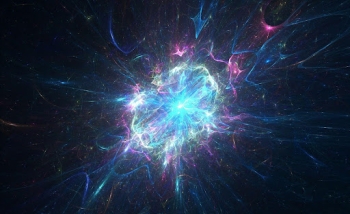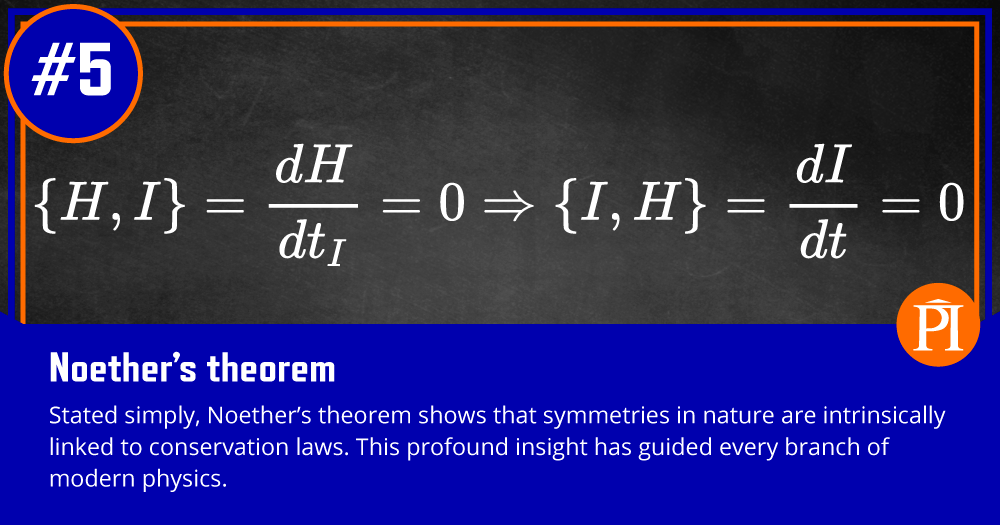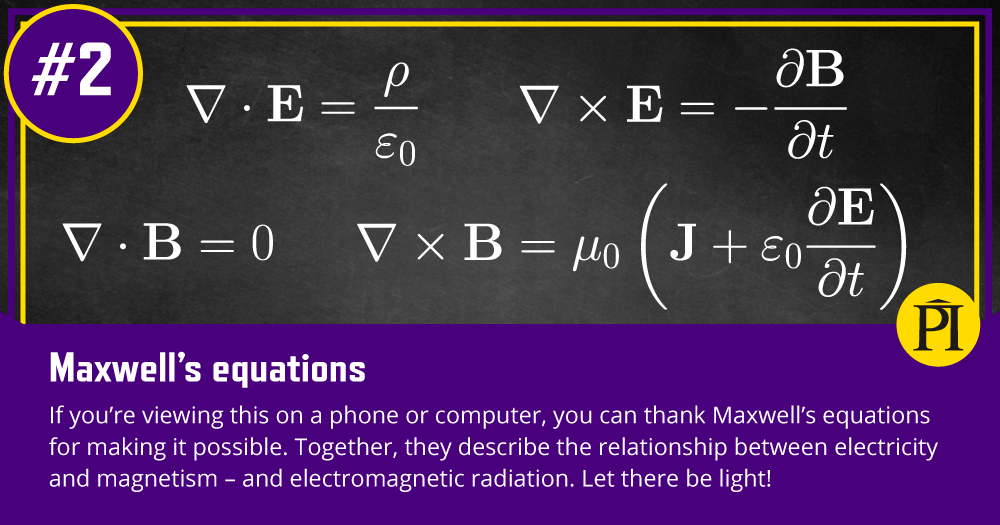March Madness is the annual, single-elimination college basketball tournament famous for thrilling buzzer-beaters and heartbreaking defeats.
The tournament has inspired plenty of other, significantly less athletic brackets to deal with such high-stakes questions as "Who was the best character on The Office?" and "What's the best pasta shape?" (aka. Starch Madness)
But now it's time for a March Madness-style showdown for the ages, as we seek to find the all-time greatest equation in physics ...
Welcome to Physics Frenzy: Battle of the Equations!
Over the next three weeks, we need your help to crown a champion. Our esteemed selection committee has chosen 16 physics-defining contenders - you can click the links below for the low-down on this smorgasbord of physics equation royalty.
Outraged that we had the nerve to include Euler's formula in the field? We'll see you in our Twitter mentions. Sick of Einstein getting all the love? Cast a vote for the Dirac equation and give a different poorly coiffed Nobel laureate some shine. Think the Friedmann equations are grossly under-seeded? Rally your friends and become the architect of a Cinderella story!
We'll narrow the field to our Elite Eight with two match-ups per day from March 15 to 18. And then the stakes really ratchet up.
- Quarterfinals: March 23 and 24
- Final Four: March 30 and 31
- The Final Showdown for Physics Frenzy Glory: April 4
In the meantime, peruse the bracket, tell your friends (nerdy trash talk is encouraged), and follow us on Twitter, where we'll keep you posted on all the action!
Think you know exactly how it will all play out? Fill out the bracket and share it on social with #PhysicsFrenzy to earn bragging rights when your equation prognostication proves prescient. And don't forget to vote!
Championship
April 4
Noether's theorem (59%)
DEF.
Maxwell's equations (41%)
Check out the full equation bracket list.
Past match-ups
March 15
Match one: #1 Energy-momentum relation (72%) DEF. #16 Stefan-Boltzmann law (28%)
Match two: #8 Einstein field equations (51%) DEF. #9 Dirac equation (49%)
March 16
Match three: #5 Noether's theorem (60%) DEF. #12 Boltzmann's entropy (40%)
Match four: #13 Planck-Einstein relation (50.5%) DEF. #4 Newton's second law (49.5%)
March 17
Match five: #3 Schrödinger equation (69%) DEF. #14 Euler's formula (31%)
Match six: #6 Uncertainty principle (74%) DEF. #11 Friedmann equations (26%)
March 18
Match seven: #7 Second law of thermodynamics (64%) DEF. #10 Newton's law of universal gravitation (36%)
Match eight: #2 Maxwell's equations (79%) DEF. #15 Hamilton's equations (21%)
Quarterfinals
March 23
Match one: #8 Einstein field equations (68%) DEF. #1 Energy-momentum relation (32%)
Match two: #5 Noether's theorem (67%) DEF. #13 Planck-Einstein relation (33%)
March 24
Match three: #3 Schrödinger equation (63%) DEF. #6 Uncertainty principle (37%)
Match four: #2 Maxwell's equations (66%) DEF. #7 Second law of thermodynamics (34%)
Final Four
March 30
Match one: #5 Noether's theorem (57%) DEF. #8 Einstein field equations (43%)
March 31
Match one: #2 Maxwell's equations (58%) DEF. #3 Schrödinger equation (42%)
About PI
Perimeter Institute is the world’s largest research hub devoted to theoretical physics. The independent Institute was founded in 1999 to foster breakthroughs in the fundamental understanding of our universe, from the smallest particles to the entire cosmos. Research at Perimeter is motivated by the understanding that fundamental science advances human knowledge and catalyzes innovation, and that today’s theoretical physics is tomorrow’s technology. Located in the Region of Waterloo, the not-for-profit Institute is a unique public-private endeavour, including the Governments of Ontario and Canada, that enables cutting-edge research, trains the next generation of scientific pioneers, and shares the power of physics through award-winning educational outreach and public engagement.
You might be interested in




